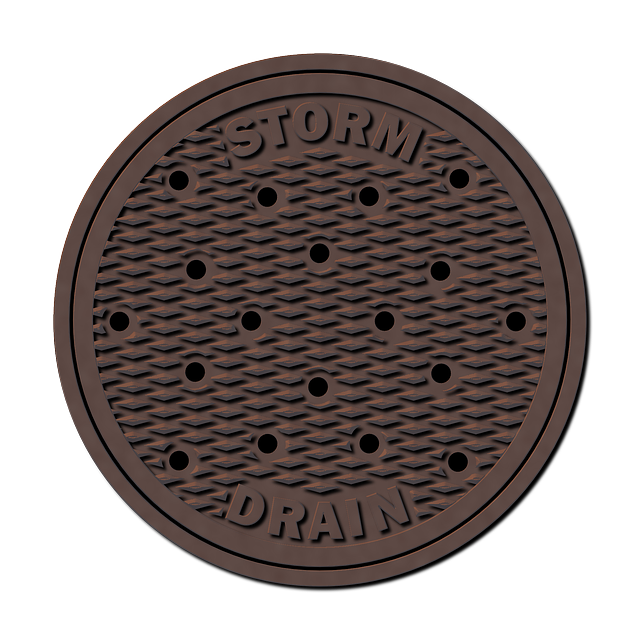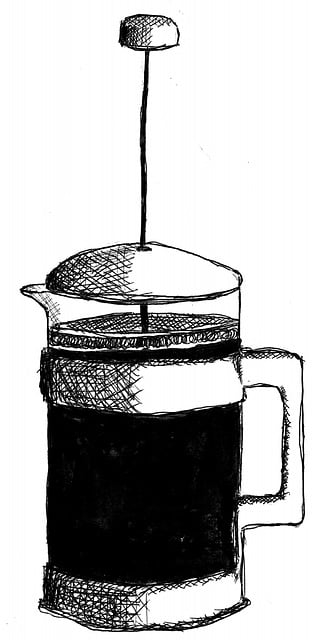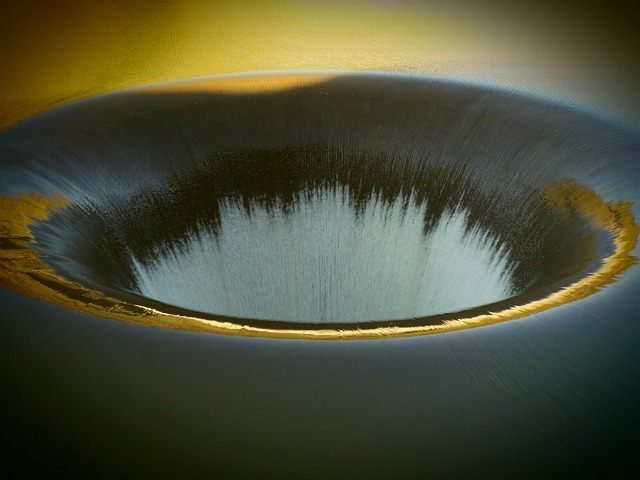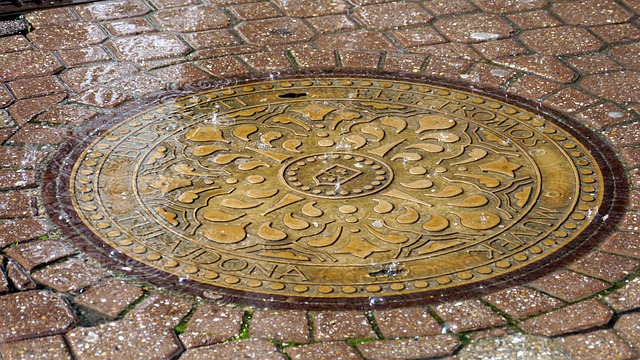Organic clogs in drains are a common household issue that can be addressed using eco-friendly DIY methods. Baking soda and vinegar create a powerful yet gentle mixture to clear obstructions safely. For stubborn clogs, a plumber's snake – a flexible metal cable – effectively breaks up or retrieves blockages without leaving toxic residues. Regular maintenance with hot water and grease drainage prevents future clogs, saving time and money on plumbing repairs. DIY techniques offer cost-effective, safe alternatives to harsh chemicals for clearing drains caused by minor issues.
Are you tired of dealing with stubborn, organic clogs in your drains? Say goodbye to chemical cleaners and explore eco-friendly solutions. This article guides you through effective methods to tackle blocked drains naturally. From understanding the causes of organic clogs to discovering the power of enzymatic cleaners, baking soda and vinegar DIY hacks, plunger techniques, and even the use of a plumber’s snake for deep-seated issues, learn how to unclog your drains safely and sustainably. Take control of your Drain cleaning with these powerful yet simple natural remedies.
- Understanding Organic Clogs: Causes and Impact
- The Role of Enzymatic Cleaners in Drain Unclogging
- DIY Methods: Using Baking Soda and Vinegar
- Plunger Use: Techniques and Tips for Success
- Alternative Tools: Plumber's Snake for Deep Clogs
- Natural Unclogging: Benefits and Best Practices
Understanding Organic Clogs: Causes and Impact

Organic clogs are a common issue in household drains and can be caused by various factors. These include pouring grease or fatty foods down the sink, flushing non-biodegradable products like wipes or sanitary items, or even hair and other debris building up over time. When organic matter accumulates, it forms a plug that obstructs the smooth flow of water, leading to slow drains or complete clogs.
The impact of organic clogs can be significant. They not only cause inconvenience but also potential damage to plumbing systems if left untreated. A DIY approach using simple tools like a plunger and natural ingredients such as baking soda and vinegar can often clear minor clogs effectively. However, for more severe cases, especially when commercial cleaners haven’t worked, it might be necessary to call a plumber or use specialized tools like a plumber’s snake to break up and remove the blockage. Preventive measures, such as being mindful of what goes down the drain, can help reduce the frequency of organic clogs, saving time, money, and potential plumbing headaches.
The Role of Enzymatic Cleaners in Drain Unclogging

Enzymatic cleaners are revolutionizing the way we approach DIY clogged drains. Unlike traditional chemical-based solutions, these natural unclogging methods target organic debris and build-up using specific enzymes that break down grease, soap scum, and other organic matter. By understanding the role of enzymatic cleaners, you can effectively navigate Drain cleaning without resorting to harsh chemicals or calling a plumber?s snake.
When combined with simple ingredients like baking soda and vinegar, enzymatic cleaners create a powerful yet gentle mixture that can clear obstructions safely. For instance, pouring baking soda followed by vinegar down the drain creates a fizzing reaction that helps to loosen clogs. This DIY approach is not only cost-effective but also environmentally friendly. Whether you’re dealing with a mild blockage or a more stubborn one, enzymatic cleaners offer a safe and efficient solution, potentially eliminating the need for excessive plunger use or strong chemicals.
DIY Methods: Using Baking Soda and Vinegar

Many people turn to DIY methods when dealing with clogged drains, and for good reason—these solutions are often effective, easy to implement, and chemical-free. One popular duo that can tackle organic clogs is baking soda and vinegar. Start by pouring 1/2 cup of baking soda down the drain, followed by 1 cup of white vinegar. This combination will create a fizzing reaction, helping to break down grease and grime buildup.
Next, use a plunger with a tight seal to apply pressure, pushing the solution deeper into the pipe. Alternatively, for tougher clogs, consider using a plumber’s snake—a flexible metal cable that can be inserted into the drain to break up or retrieve obstructions. Unlike chemical cleaners, natural unclogging methods like baking soda and vinegar are safe for septic systems and won’t harm pipes or leave behind toxic residues, making them ideal choices for DIY enthusiasts seeking eco-friendly drain cleaning solutions.
Plunger Use: Techniques and Tips for Success

When it comes to tackling organic clogs in your drains, a plunger is a DIY tool that shouldn’t be overlooked. The key to successful plunger use lies in understanding the right techniques and employing effective natural unclogging methods. Start by pouring 1/2 cup of baking soda into the drain followed by a cup of white vinegar. This mixture will fizz and help break down any organic matter causing the clog. Next, quickly place the plunger over the drain opening and pump vigorously up and down for several seconds to create a strong suction.
If the initial attempt doesn’t clear the clog, don’t panic. Consider using a plumber’s snake (a flexible metal cable) to manually dislodge any obstructions. For stubborn clogs, repeat the baking soda and vinegar process, allowing the mixture to soak for up to 15 minutes before plunging again. Remember, regular maintenance like these DIY drain cleaning methods can prevent future clogs, reducing the need for professional plumbers or harsh chemical cleaners.
Alternative Tools: Plumber's Snake for Deep Clogs

When it comes to tackling stubborn organic clogs, a plumber’s snake is an invaluable tool that many DIY enthusiasts keep in their arsenal. This flexible, spiral-shaped device is designed to navigate tight bends and reach deep into drains, making it perfect for removing hard-to-reach obstructions. Unlike chemical cleaners, which can be harsh and potentially damaging to pipes, a plumber’s snake offers a natural unclogging solution that’s gentle on both your plumbing and the environment.
For DIY clogged drains, combining baking soda and vinegar is often all it takes to clear minor blockages. But for deeper clogs, a plumber’s snake provides a more robust alternative to a simple plunger. By manipulating the handle, you can guide the snake through the drain, dislodging any debris or foreign objects that may be causing the blockage. This hands-on approach allows you to see exactly what’s blocking your drain and ensures a thorough cleaning without relying on potentially toxic chemicals.
Natural Unclogging: Benefits and Best Practices

Natural unclogging methods are a popular choice for DIY enthusiasts seeking to clear drains without harsh chemicals. The benefits are numerous: cost-effectiveness, reduced environmental impact, and safety for both your family and pipes. Common natural solutions include using a plunger, baking soda and vinegar, or even a plumber’s snake. These methods are often effective in dealing with minor clogs caused by grease buildup, hair, or soap scum.
When employing these DIY techniques, ensure best practices are followed for optimal results. For instance, using hot water after applying a baking soda and vinegar mixture can help break down the clog further. Regular maintenance is key; preventing clogs through careful drainage of grease and regular cleaning with hot water can save you time and money in the long run. Consider these natural unclogging methods before calling a plumber for minor issues.






